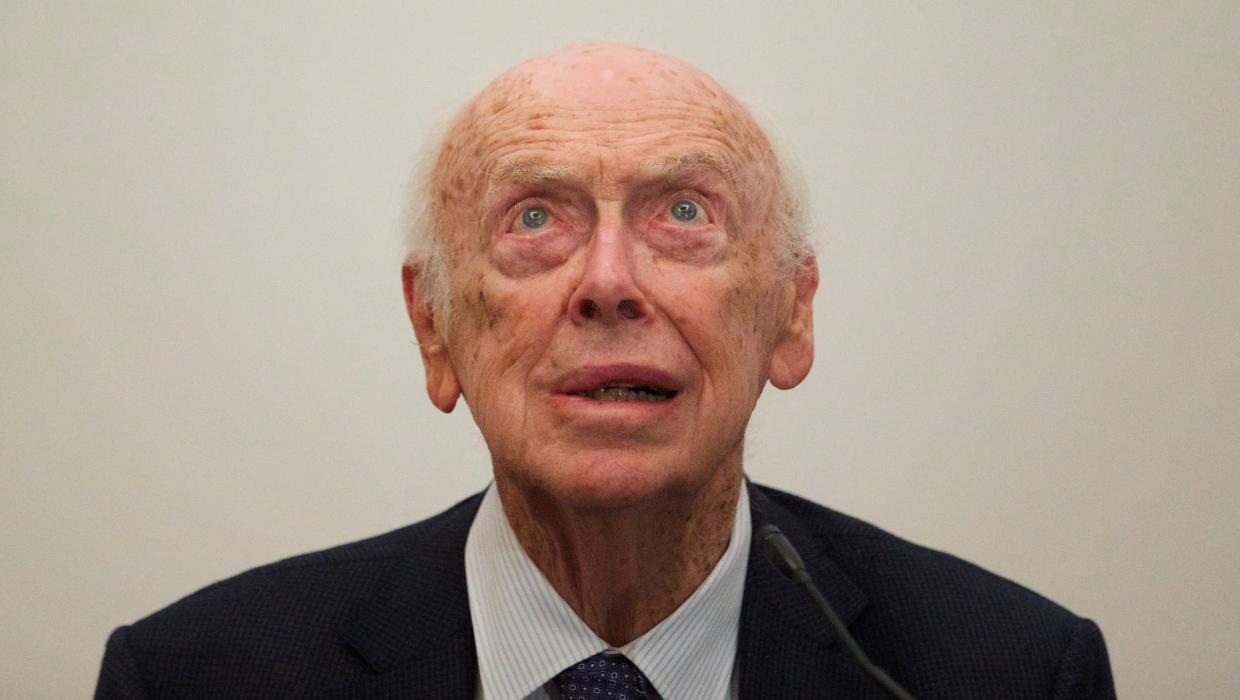Science
Renowned Scientist James Watson Passes Away at 95, Leaving Legacy Behind

James Watson, the co-discoverer of the structure of DNA, passed away at the age of 95. Known for his critical role in unveiling the double helix model in **1953**, Watson’s contributions to science earned him a **Nobel Prize** in Physiology or Medicine in **1962**. His groundbreaking work, conducted alongside **Francis Crick** and **Rosalind Franklin**, established him as a pivotal figure in the field of genetics.
Born on **April 6, 1920**, in Chicago, Illinois, Watson demonstrated an early aptitude for science. His collaboration with Crick at the **University of Cambridge** led to the publication of their seminal paper in the journal *Nature*, which fundamentally altered the landscape of molecular biology. The discovery of DNA’s structure has had profound implications for genetics, medicine, and a range of scientific disciplines.
Controversial Legacy
While Watson was celebrated for his scientific achievements, his later years were marred by controversy. Throughout his career, he made several public statements that were widely regarded as offensive and discriminatory, particularly regarding race and intelligence. These remarks led to significant backlash from the scientific community and resulted in his professional censure.
In **2019**, Watson was stripped of honorary titles at **Cold Spring Harbor Laboratory**, where he had served as president and chancellor for decades. The institution emphasized that his views did not reflect their values, marking a stark contrast between his early scientific accolades and later controversies.
Despite the condemnation, Watson’s impact on the field of genetics remains undeniable. His work contributed to the **Human Genome Project**, which aimed to map all the genes in the human genome and has paved the way for advancements in personalized medicine and biotechnology.
Reflections on His Contributions
The scientific community continues to grapple with the duality of Watson’s legacy. While his contributions to the understanding of DNA are celebrated, the ethical implications of his statements have prompted discussions about the responsibilities of scientists in public discourse. Many researchers have called for a reevaluation of how scientific achievements are acknowledged in light of personal conduct.
In a statement following his passing, **Cold Spring Harbor Laboratory** expressed its condolences and noted that Watson’s work “revolutionized our understanding of life itself.” The organization reaffirmed its commitment to fostering diversity and inclusivity within the scientific community, highlighting the need for ongoing dialogue around the ethical dimensions of scientific inquiry.
Watson’s death marks the end of an era in molecular biology. His journey from a young scientist making groundbreaking discoveries to a controversial figure serves as a reminder of the complexities that can accompany scientific progress. As the world reflects on his contributions, it is clear that the legacy of James Watson will continue to evoke both admiration and critical examination for years to come.
-

 Sports2 months ago
Sports2 months agoNetball New Zealand Stands Down Dame Noeline Taurua for Series
-

 Entertainment2 months ago
Entertainment2 months agoTributes Pour In for Lachlan Rofe, Reality Star, Dead at 47
-

 Entertainment4 weeks ago
Entertainment4 weeks agoNew ‘Maverick’ Chaser Joins Beat the Chasers Season Finale
-

 Sports6 days ago
Sports6 days agoEli Katoa Rushed to Hospital After Sideline Incident During Match
-

 Sports2 months ago
Sports2 months agoSilver Ferns Legend Laura Langman Criticizes Team’s Attitude
-

 Politics1 month ago
Politics1 month agoNetball NZ Calls for Respect Amid Dame Taurua’s Standoff
-

 Entertainment2 months ago
Entertainment2 months agoKhloe Kardashian Embraces Innovative Stem Cell Therapy in Mexico
-

 Sports4 days ago
Sports4 days agoJamie Melham Triumphs Over Husband Ben in Melbourne Cup Victory
-

 World3 months ago
World3 months agoPolice Arrest Multiple Individuals During Funeral for Zain Taikato-Fox
-

 Sports3 months ago
Sports3 months agoGaël Monfils Set to Defend ASB Classic Title in January 2026
-

 Entertainment1 month ago
Entertainment1 month agoTyson Fury’s Daughter Venezuela Gets Engaged at Birthday Bash
-

 Sports1 month ago
Sports1 month agoHeather McMahan Steps Down as Ryder Cup Host After Controversy




















